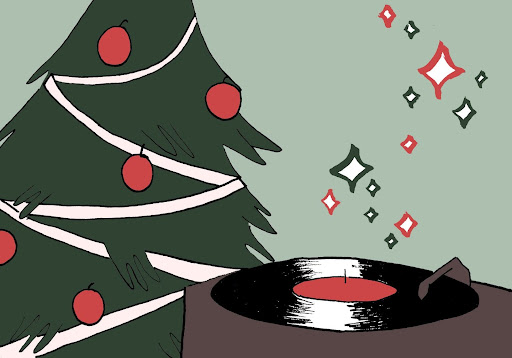If 2013’s “Lousy with Sylvianbriar” was a sharp left turn for Of Montreal’s Kevin Barnes, “Aureate Gloom” is a u-turn back onto a familiar road. This record marks a transitional period for Barnes and the emotional turmoil is reflected in the lyricism and Barnes’ ever-abstract compositional sensibility. Having gone back to record and tour with the new line-up, sans vocalist Rebecca Cash, seen on “Lousy with Sylvianbriar,” the record sees an almost entire departure from the Dylan-esque folk/neo-country sounds and delves into an experiment with late-70s art punk culture. Sonically, it’s more akin with 2010’s “False Priest,” fraught with the pomp and psychedelic funk that saw collaborations from vocalists Janelle Monae and Solange. However, the lyrical themes reflect back onto the romantic muse who heavily influenced one of Montreal’s biggest record, “Hissing Fauna, Are You the Destroyer?” Months after the release of “Lousy with Sylvianbriar,” Barnes had separated from his wife of 10 years, Nina. She is referred to heavily on “Hissing Fauna” as Nina Twin, and their daughter Alabee is also referenced in the record’s lyrics.
The album begins on the sly funk-romp “Bassem Sabry,” named for the journalist notable for his coverage of the Egyptian Revolution, and died subsequently after. Barnes notes the use of the name as a thematic element relating to government and oppression, not necessarily a direct narrative about the passed journalist. Initially, the band released the track “Empyrean Abbatoir,” a somewhat somber pulsation beneath Barnes’ more low-key vocal style that transitions towards aggression and strangely inviting syncopated arrangements. After reforming with a new band, Barnes returns with collaborator and once touring member Kishi Bashi, who performs and arranges the lush strings of “Aureate Gloom.” Despite their glimpses of breaking into the mainstream rock-pop sphere, the band has made concerted efforts to avoid full-fledged stardom, playing smaller venues such as Webster Hall or LPR in the East Village. The record features some of Barnes’ signature campy lyricism, but reflects a level of candor that hasn’t been as prominent on their previous efforts. Often layered in mysticism, some lyrics actually make their aim towards individuals who influence Barnes’ songwriting process. On “Last Rites at the Jane Hotel,” Barnes sings, “Why would you ask? Why should you care how I’m doing? Do I bother you with those kinds of vapid questions anymore?” In the track there’s also a prominent influence of CBGB’s era New York, referencing apartments and the Jane Hotel in Chelsea. “Aureate Gloom” concludes on “Like Ashoka’s Infernal Memory,” Barnes channels Lou Reed-style spoken word over a tension-filled, spastic rhythm section, transitioning rapidly between tempos, keys and meters.
During the tour leading up to the record’s release, the band played sets primarily comprised of “Hissing Fauna” and hits from previous albums, “Skeletal Lamping,” “False Priest,” and “sylvianbriar.” While teasing crowds with glimpses of the singles from “Aureate Gloom,” the band balances spontaneity with theater as an innovative art form, integrating digital art projections, costumed performers and wildly avant-garde props. Also, Barnes’ infamous transition into the character “Georgie Fruit” onstage similar to Bowie’s “Ziggy Stardust,” which occurs in between skits and sequences. As much as Of Montreal is noted for their musical ability, they are also a visual group, with Barnes’ brother Dave serving as an art director, ex-wife Nina contributing artwork and even Barnes’ own sculptural work being sold at concerts as well. As an individual record, it doesn’t necessarily indicate Barnes’ strongest work, yet in the scope of the Of Montreal sound, it serves as a bookend to the chapter of Barnes’ relationship with his ex-wife.









